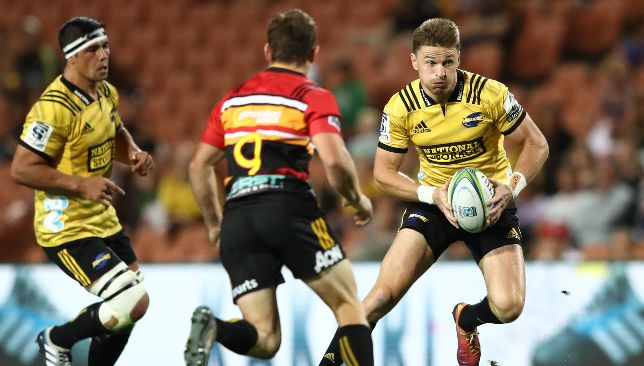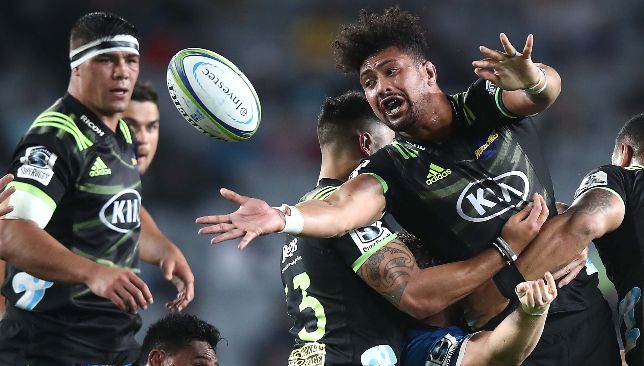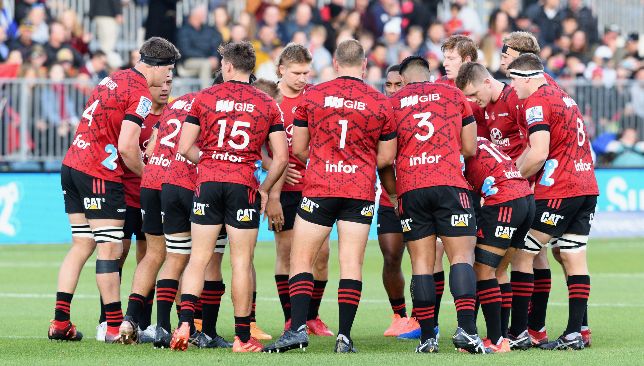
You don’t have to like rugby to enjoy seeing Beauden Barrett run the ball from deep, or the physicality and workrate of Ardie Savea. Rugby in New Zealand is played by warriors at a frightening level.
With the Super Rugby season suspended since mid-March, Kiwi sides announced plans to run an internal, domestic competition after the government eased Coronavirus lockdown restrictions in recent weeks.
The prospect of five world-class New Zealand teams battling it out in 20 matches over a 10-week period is enough to put a smile back on sports fans’ faces.
Given the restrictions on international travel, the new competition involves Auckland-based Blues, Hamilton-based Chiefs, Wellington-based Hurricanes, Christchurch-based Crusaders and Dunedin-based Highlanders.
It may be a cobbled-together product in some people’s eyes, however, Super Rugby Aotearoa should provide more intriguing battles than some regular Super Rugby fixtures.
Generally, when it comes to Super Rugby, the Kiwi teams are the stand-out attraction, having won the competition 17 times since its inaugural season in 1996.
From a player’s perspective, the new competition has been greeted with excitement. Ultimately, any player or coach involved with rugby just wants to get back playing.
The chance of lifting a trophy and adding pride and satisfaction to your club colours is the primary goal. And not to forget, places to play for when it comes to All Blacks squad selection later this year.
If the competition proves to be a success over the coming the weeks could we see a revamp in the future?
Money talks around the Sanzaar – the body which oversees Super Rugby and The Rugby Championship competitions – table and, at present, the loudest is a Kiwi voice.
As it stands, New Zealand, Australia and South Africa receive an equal share of the broadcasting pot – one-third each – with a set amount put aside for Argentina.
This is unfair considering New Zealand offers most cash through a new Sky deal – worth $251 million over five years – signed in October, as well as boasting the best crop of individual talent.

The revolutionary rights deal cements New Zealand’s status as the most powerful nation of the Sanzaar countries – by a long shot. Sanzaar need the Kiwis and their money more than any other nation.
Despite being the current world champions, South Africa offer significantly less – currently $26 million per season – via its broadcaster SuperSport, because of the weak Rand.
The Springboks are rumoured to be interested in joining the Six Nations, a wise move, considering the one-hour time difference with Cape Town and the UK. Travelling to Europe rather than Australiasia will be ideal for player welfare.
The ailing Sanzaar partner, though, is clearly Australia, where Fox Sports is reportedly only in a position to offer $10-13m a year for the 2021-2026 rights. Given how weak the game is in Australia, do Sanzaar keep pulling them along?
Justifiably, New Zealand Rugby should be requesting a larger share of the Sanzaar pot to reflect its growing contribution, or even walk away and continue with its own domestic tournament. A move that would be welcomed by most people.
The new Sky deal gives New Zealand an opportunity to pull the strings with Sanzaar and have a key say in the shake-up of Super Rugby from next season, in a bid to keep the competition relevant and sustainable.
Prior to the suspension of the Super Ruby campaign, the tournament was already set for major changes in 2021, with a move to a 14-team, round-robin format, and the departure of the Japan-based Sunwolves.
Despite the Sunwolves exit, there is a strong interest that a Japanese team remains involved in the competition.
With strong commercial incentives, it is difficult to see the tournament without a Japanese outfit, especially with successful corporations like Panasonic, Suntory, Toyota, Ricoh and Kobelco backing Top League teams.

Considering how much weight New Zealand bring to the party, they inevitably have the power when the various Sanzaar nations sit down at the discussion table later this year.
Could the Kiwis potentially call for an increase in the number of New Zealand teams competing in Super Rugby, and reduce the number of sides from Australia and South Africa?
If they are not happy with the current distribution of finances, could they request a lion’s share of the cash, or simply pull out and carry on with their domestic league?
If New Zealand clubs did ever withdraw from Super Rugby it would make for a boring competition and that would seriously affect television viewership and commercial deals around the league. Sanzaar needs New Zealand more than any other country.
There are plenty of issues to be raised, but for now, our attention turns to the resumption of live rugby in two weeks.
Super Rugby Aotearoa gives supporters a chance to tune into their beloved sport and see some of the best players in the world in action. Fans crave high-calibre games with plenty of attacking rugby. There is more chance of getting this in New Zealand than anywhere else in the world.
It will undoubtedly be a highly-successful tournament and calls may come for it to be a permanent fixture on the rugby calendar. The five Kiwi teams are the shining lights of the competition. The teams each fan wants to see.
It’s fascinating to see what New Zealand can do over the coming months to influence any change. While the focus will be on their domestic league, down the line, the new TV deal gives them priority should there be any significant changes.
No doubt, if a key decision is to be made, the Kiwis will have the final say in a bid to change the game to provide the right package for fans.